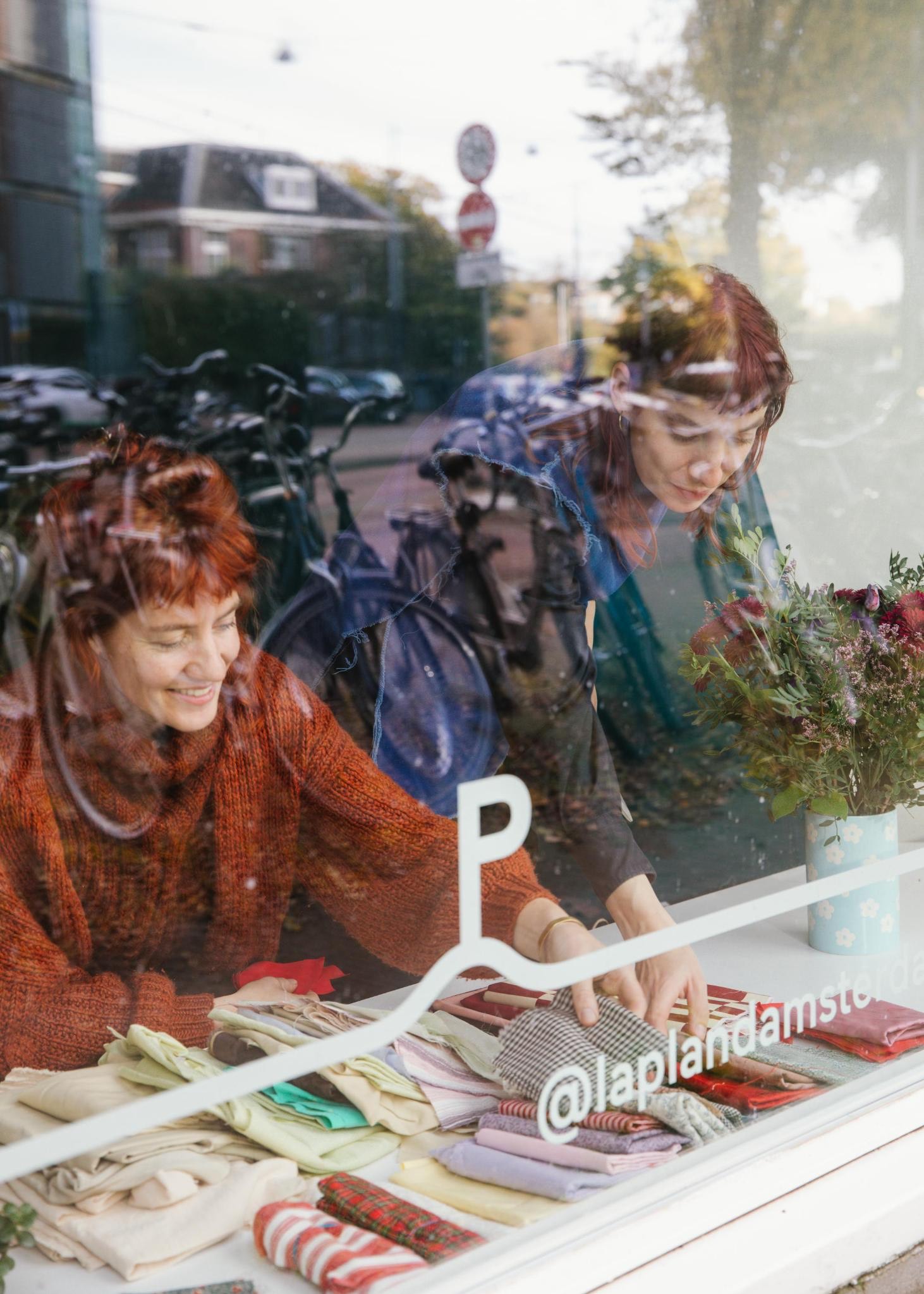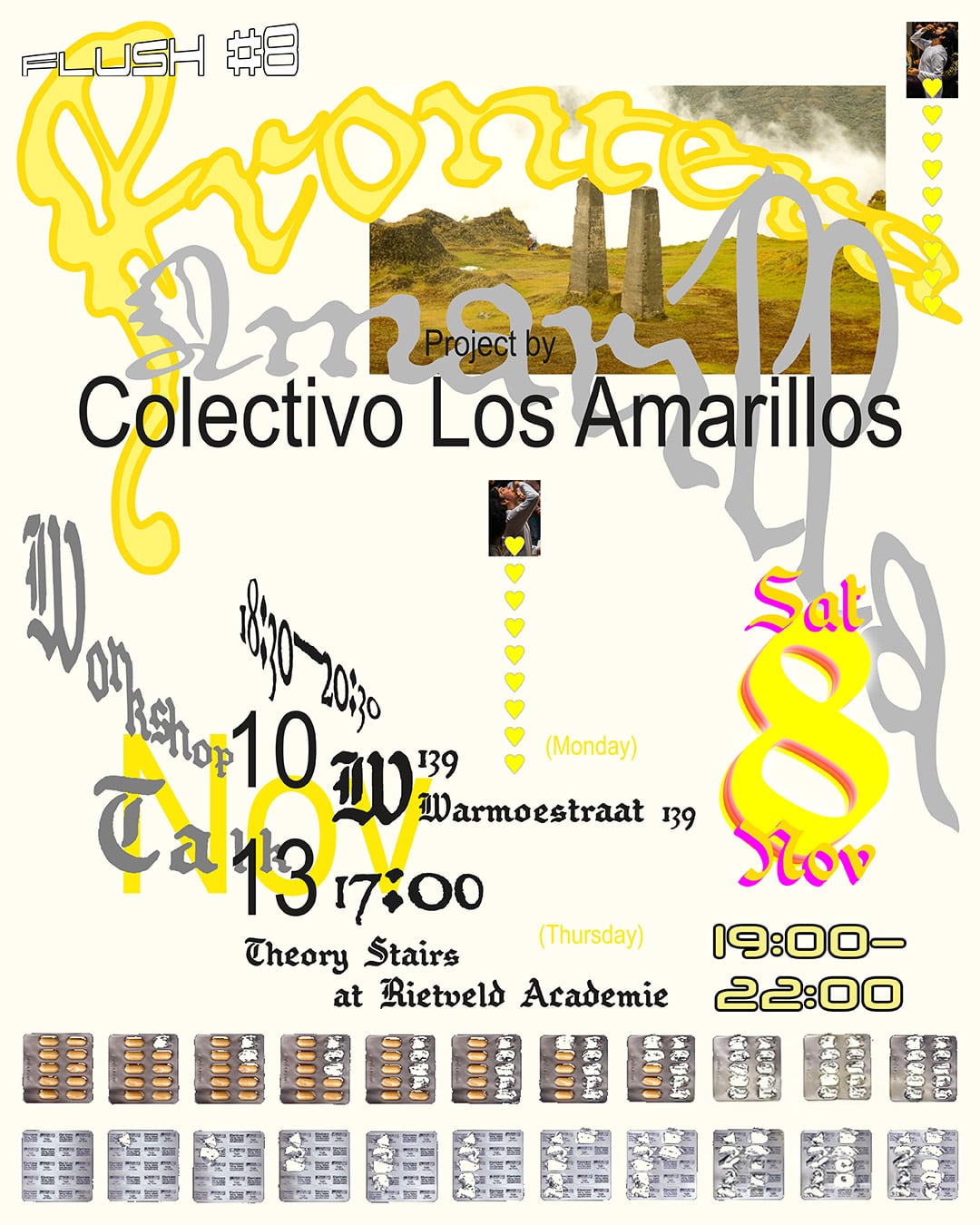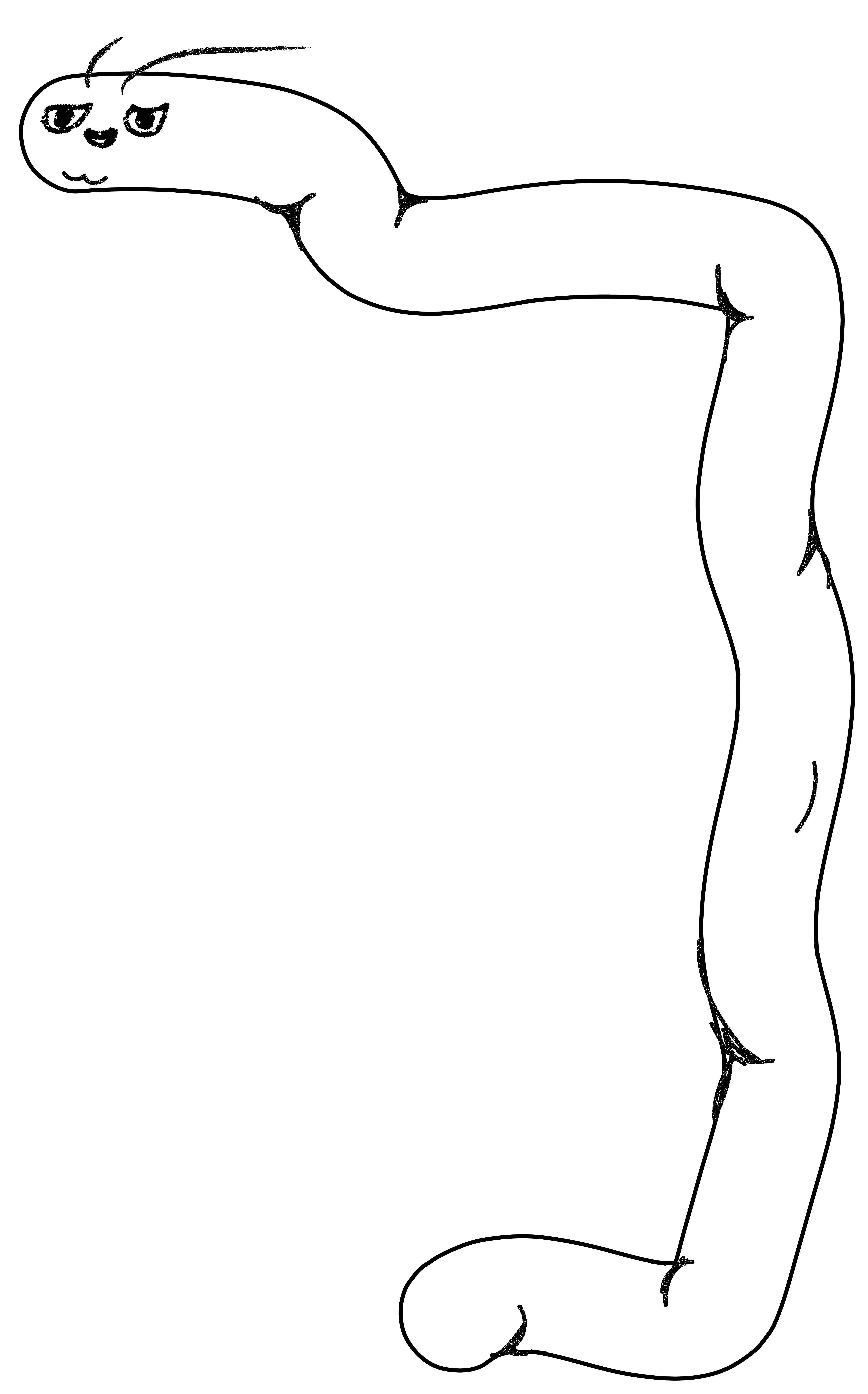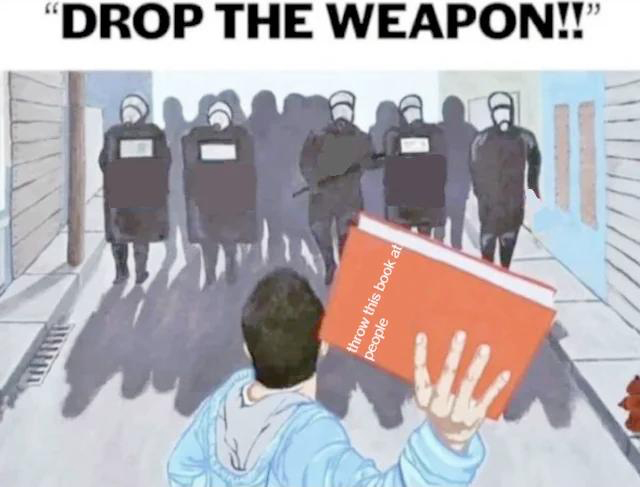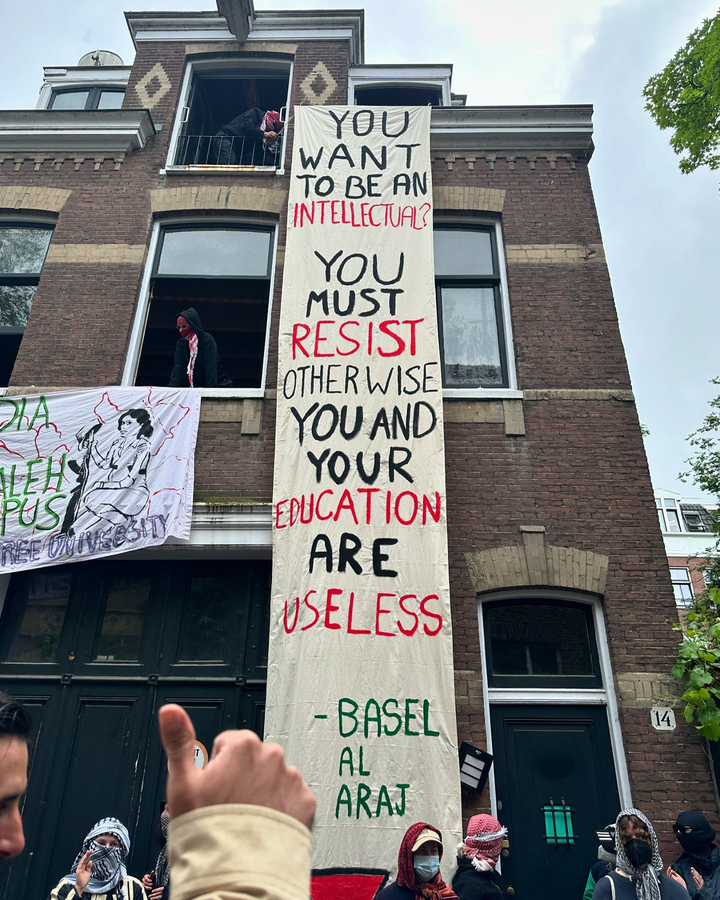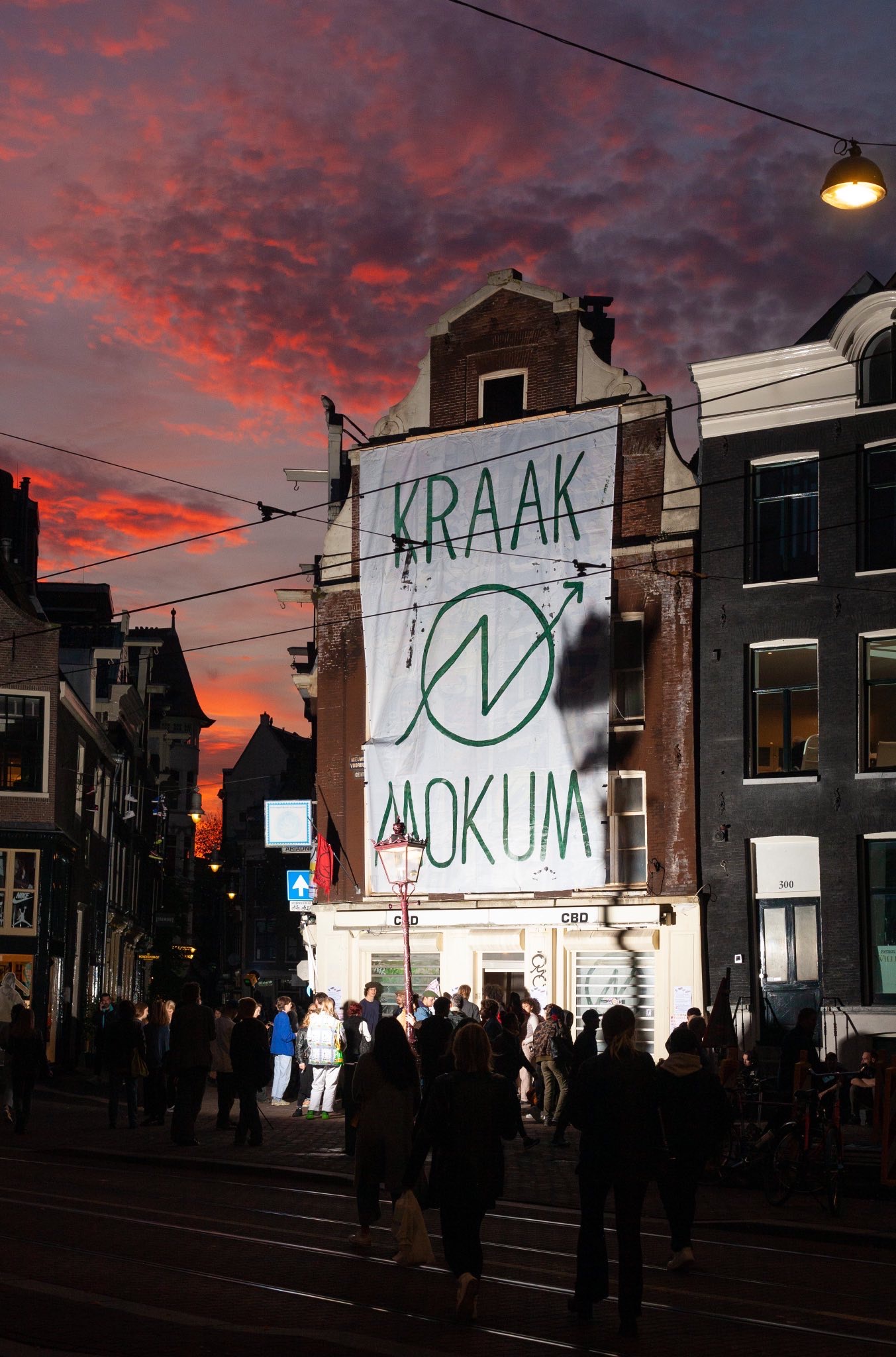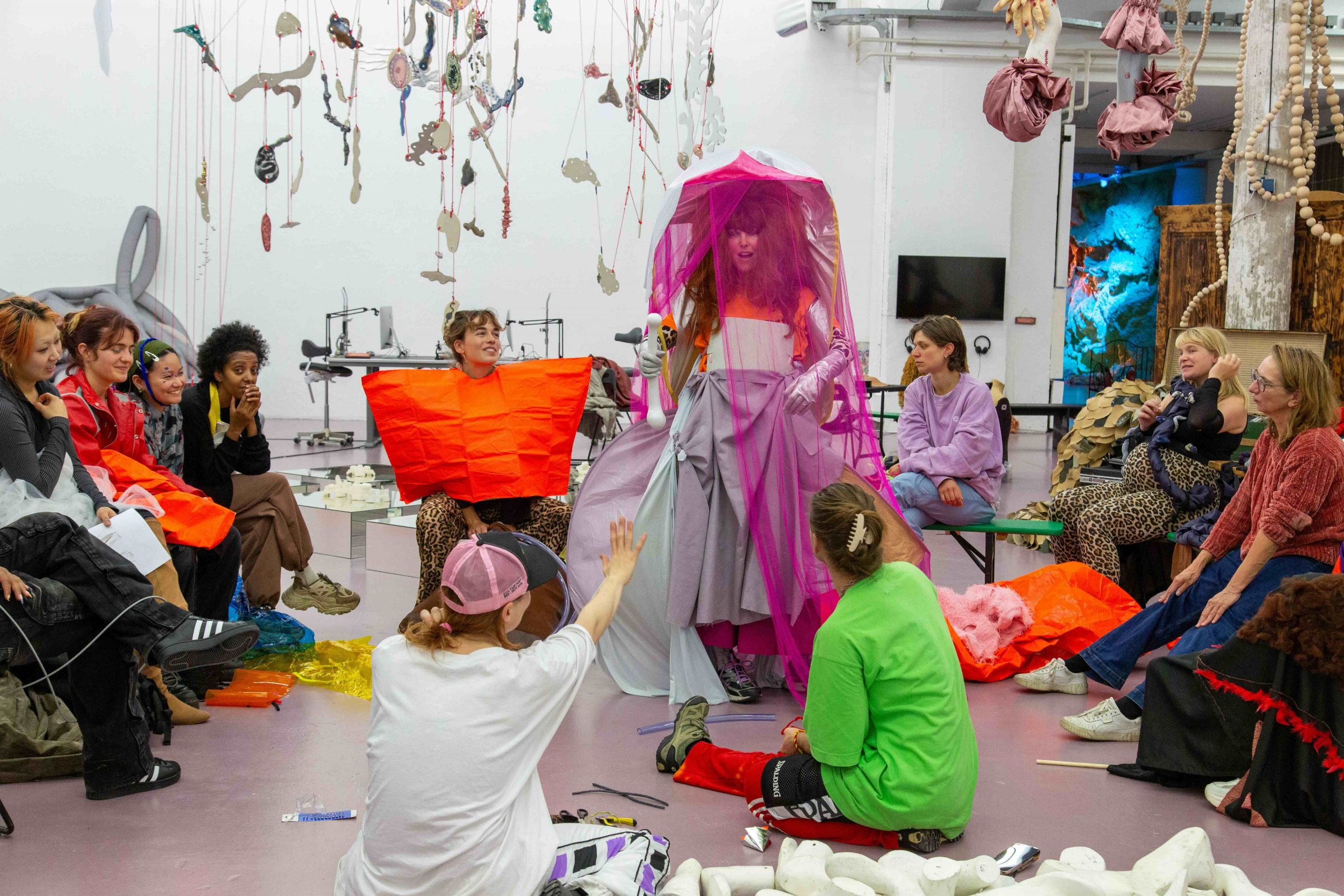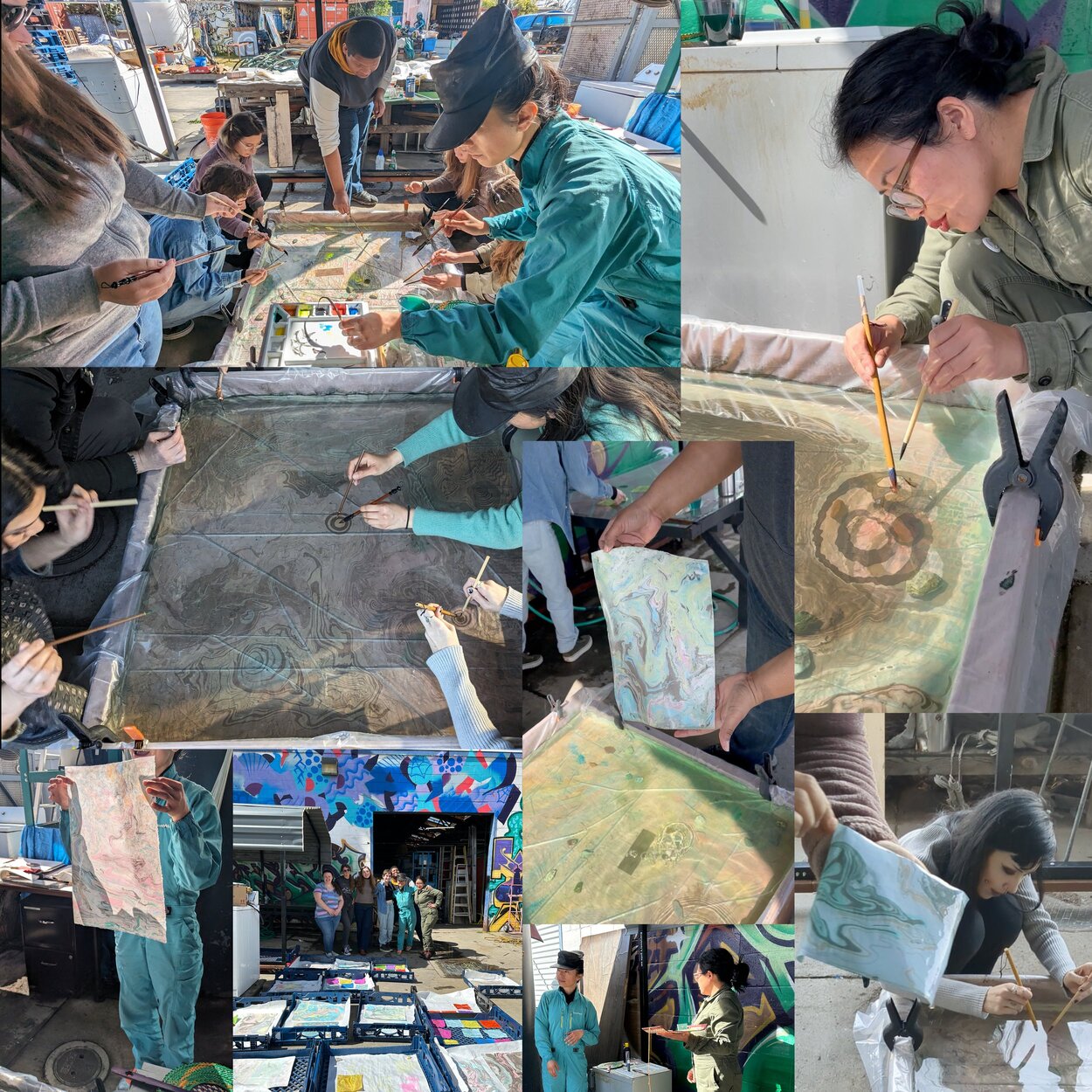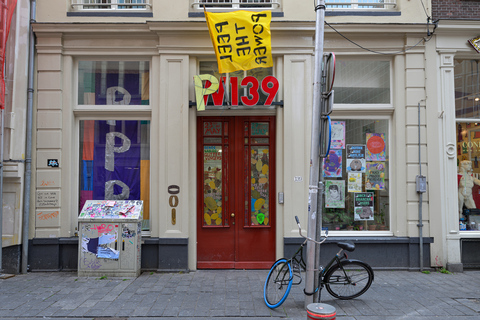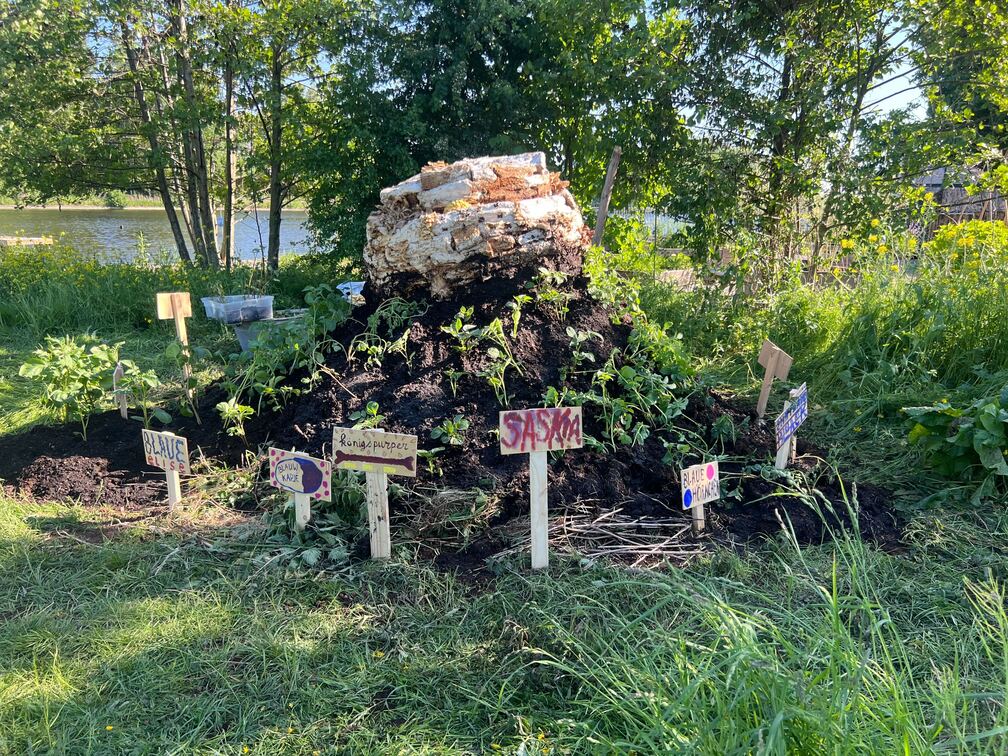The workshop-filled day shows how the Doe-Het-Zelf Werkplaats collectively designed and built a party office for the PPP by making armor to protect yourself, floating ink printing, book-binding, and writing mythical stories.
Our impulse in taking on this project was to develop collective structures and working methods: How do we co-create a design? Allocate hours and responsibilities? Make decisions? We embraced infrastructures that let us improvise, hold complexity, and share a foundation (and Excel sheets), aiming to make this knowledge portable. Now that we’ve finished our build-up, we want to reflect as a collective on how our intentions arrived in practice. The office is also a working site: for growing potatoes, making ink, posters, publications, and potato paper—alongside items from the PPP fabriek, in the rear of W139.
Doe-Het-Zelf Werkplaats is a free-to-use, collectively-run (squatted) workshop space and community garden in Rotterdam operated by volunteers. Visitors come to fix their bikes with tools and spare parts that have been donated while neighbors can freely harvest herbs from the garden. Centered around learning together, reciprocal generosity, and anti-judgement, the space creates a welcoming environment where folks can safely relate to each other on the border of what they know and what they are trying to figure out. DHZ consists of Deniz Gülyurt, M.B. McGregor, Christian Lesmes, Florian Henschel, Sapozhnikov Mikhail, Linda Zeb Hang, Tomi Hilsee and Saina Salarian.
Programme
DHZ Introduction
12:00 – 13:00
Rhythmic Publications: Floating Ink Printing And Binding
Linda Zeb Hang
13:00 – 15:00
Learn the flow of Suminagashi, or the art of Japanese water marbling, which in this workshop is a large-scale collaborative printmaking process. Participants will be guided through the steps of using natural brushes to create floating ink designs on water with accordion wind fans to manipulate the surface. They will then transfer the design onto paper by hand pulling each unique print. Participants will be using 6 colors of inks to create the designs in a water vat installed at W139, and make up to 4 small and 4 medium sized prints. Prints will be bound into a booklet during the following workshop, folded into signatures and bound by hand using needle and thread.
Linda Zeb Hang is a queer Hmong-American, Rotterdam-based artist best known for their conceptual artist’s books, hypnagogic book design, sculptural installations, fine art printmaking and experimental video art. Their content of scanning voices cross-sections the invisible density, flavor profiles, and omniscient presence of the woven, yet frayed environment. They consider innovative organizing to be objective oxygen, interacting with media to animate the duality and ‘non-duality’ of space. They shape sound and material cultures through technical experimentation, working spontaneously, collecting and generating information to arrive at a knotty mixed-media synthesis. Flexibility, instinct and intuition are their chosen guides. Their tools are digital, machine age and ‘primitive.’
Mythical Storytelling: Potato Power Parables
Deni
14:00 – 16:00
This month, we dug beneath the surface —literally and metaphorically— with the potato as our guide. Often used to spin colonial myths, the potato reveals the tangled truths of global history: how the resources of the Global South have long fed the North, even as modern narratives claim the opposite. In this workshop, we’ll explore how dominant stories —crafted by colonial and capitalist powers— have shaped our understanding of history, identity, and belonging. We’ll ask: Whose stories get told, and whose are silenced? Together, we’ll read a short excerpt to break the spell of so-called “realistic” capitalist storytelling, then turn to the empowering art of mythical storytelling. Through writing laments, prayers, dreams, and wishes, we’ll reclaim our voices and imagine new worlds. Whether you want to mourn what’s lost, dream of what could be, or simply tell the world as you see it, this is a space to write the stories only you can tell. Come ready to question, imagine, and write your own myths—rooted in truth, resistance, and possibility.
Deni is a Rotterdam-based collective member who is interested in topics of individuality, nature of experience and perception, and creating multi-sensory media for self-expression. She is studying neuroscience and working in a wet lab everyday, where she gets to test and explore her own perceptual space and relatedness to the living organisms she is “manipulating.” She brings together her different selves to explore the boundaries of her material existence and expresses these ideas mostly through music, collages, and drawings.
Press Play and Protect: Making Wearable Resistance (Armor) & A Sonic Ceremony of Collective Resilience
MB McGregor and Saina (DHZ)
15:00 – 18:00
This workshop brings together making and listening as ways to think about protection—both personal and collective. We’ll start with a hands-on session where you can create wearable pieces using discarded bike parts, soft fabrics, and found objects. Think of it as DIY armor: something that holds strength, softness, protest, or play. Materials like inner tubes, chains, grommets, and fabric will be provided, with space to experiment and shape things in your own way. You can follow examples, ask for support, or just dive in freely.
MB (MaryBrown) McGregor is a Rotterdam-based, California born landscape architect, DJ and queer interdisciplinary artist whose practices live at the intersection of spatial design, social intervention, and collective resistance. They work to challenge status quos — whether through public space design, interactive installations, or nightlife politics.
Saina is a Netherlands-based Iranian researcher and organizer. Their work floats somewhere between music and politics. Centering radical care and joyful activism in their work, Saina’s interests range from sound to solidarity; they aim to weave a sound tapestry dedicated to the interconnected struggles for liberation.
Sonic Ceremony
18:00 – 20:00
Later, we’ll shift into a shared listening session—a kind of sonic ceremony—featuring a mix of sounds and songs of resistance from different parts of the world. This will be an intentional space to sit or move with grief, rage, and uncertainty—transforming these emotions through sound and shared presence. In a world where relentless atrocities stream constantly into our hands, this gathering offers a moment to pause, listen deeply, and process together. Through movement, sound, or writing, we channel stagnant political rage into imagination, action, solace, and resistance. No experience is needed—just openness.
Come to build, to listen, to be with others in a space where making becomes a form of resistance, and sound becomes a way of holding space. Whether you’re crafting armor or simply showing up, this workshop is about presence, protection, and protest in many forms.
